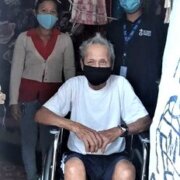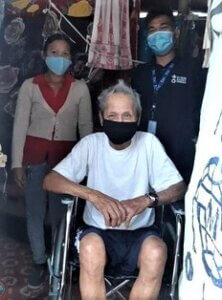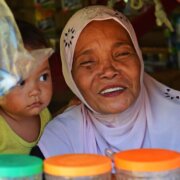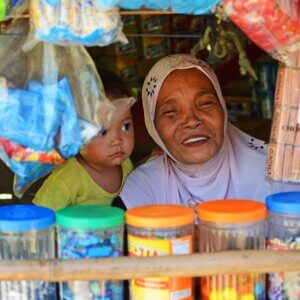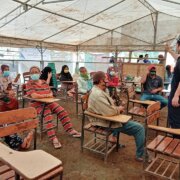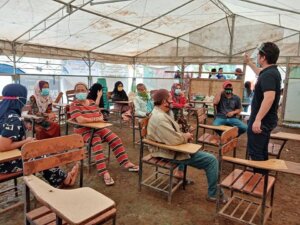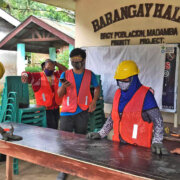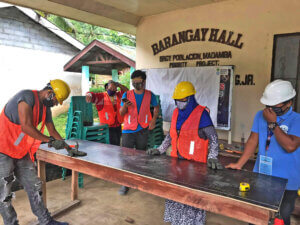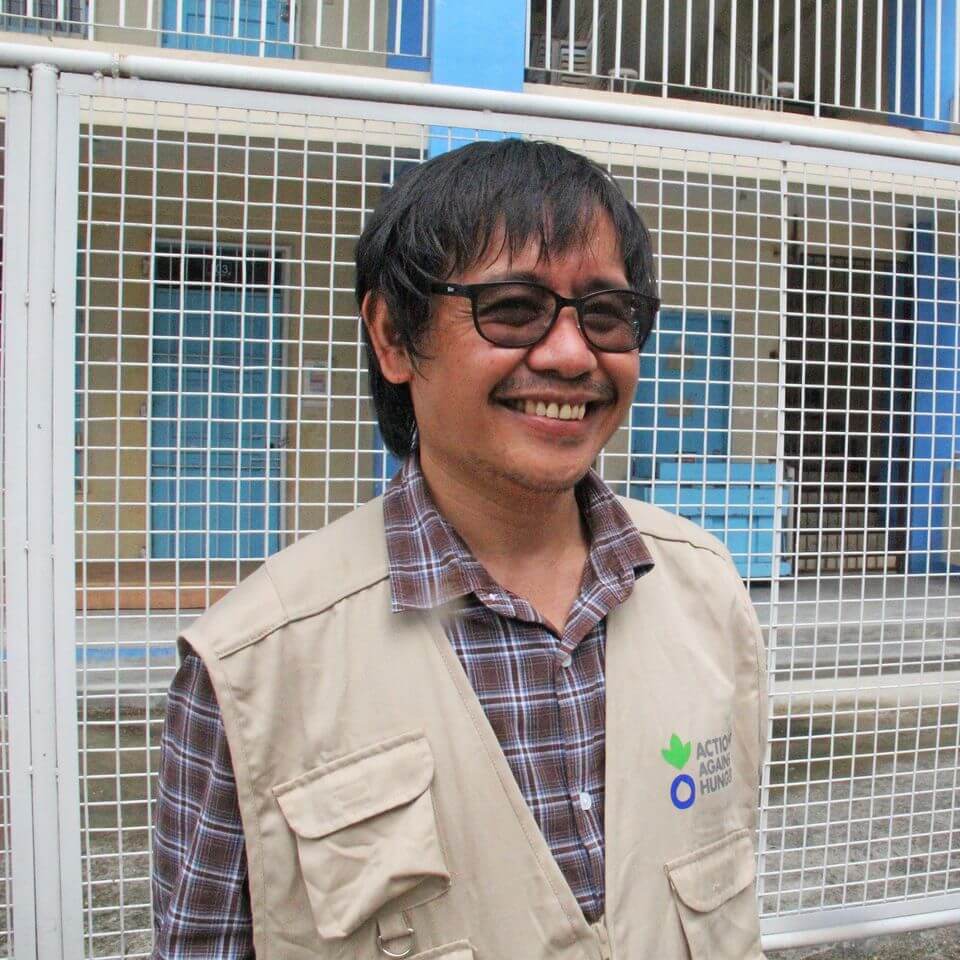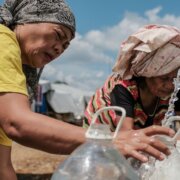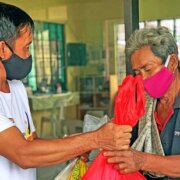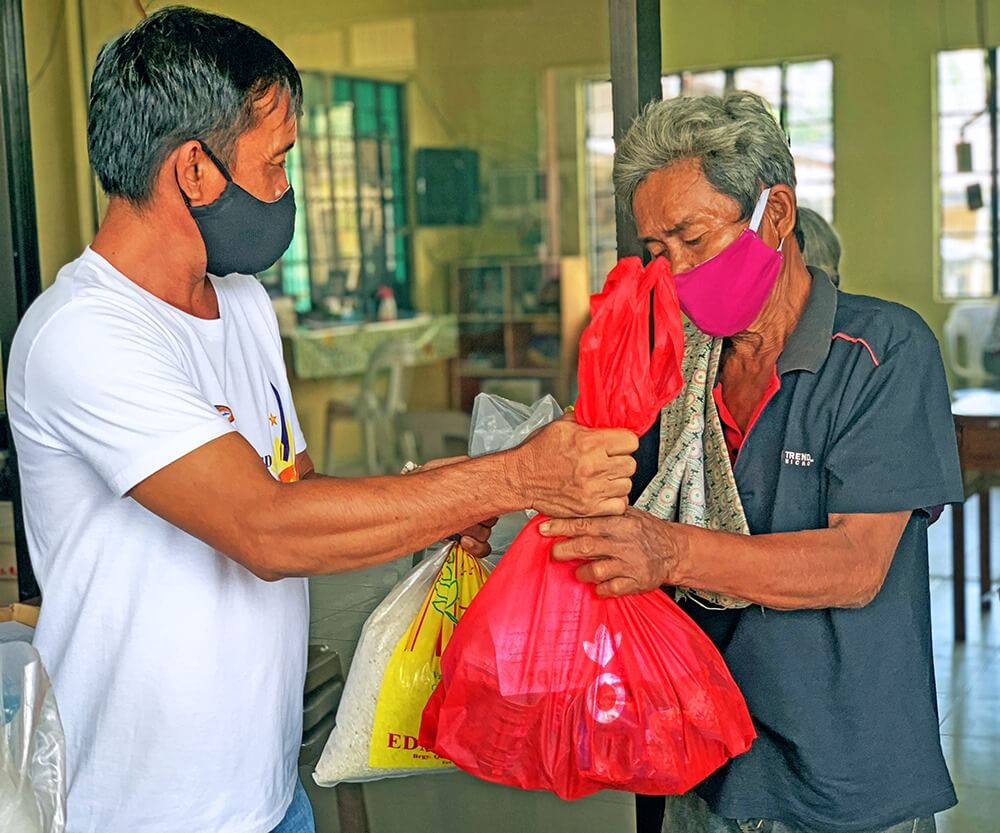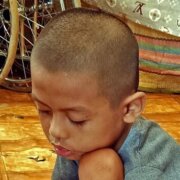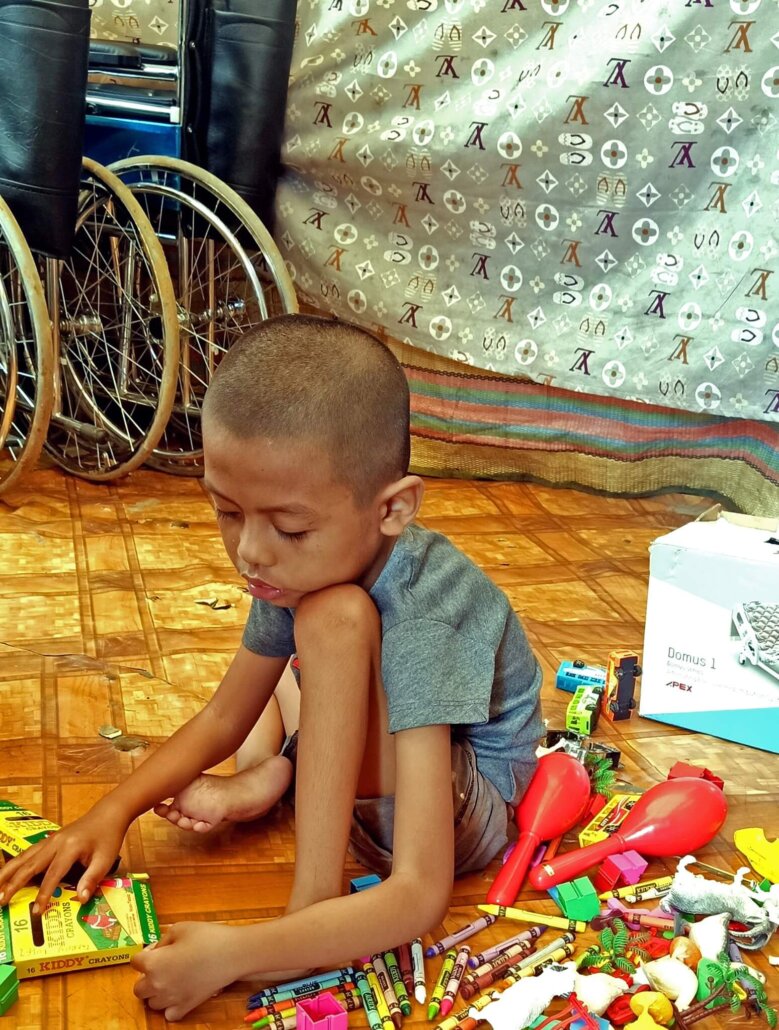Life After The Mindanao Earthquake: 82 Year Old Man Living By Himself
Written by Joayra Gem Balagtas for Action Against Hunger
82-year old Pedro Sanchez has been living alone in the evacuation site in Perez, Kidapawan ever since the Mindanao earthquakes last year. All three of his children now have families of their own. They would sometimes send him financial help, but it is usually not enough to support Pedro since their families have needs as well.
More than a year ago, Pedro was diagnosed with diabetes and suffered a stroke, and he hasn’t been able to walk ever since. He can hardly hear as well, which he says could probably be because of his old age.
Pedro relies on his good neighbors for assistance in taking care of himself. Whenever he has money, he asks his neighbors to buy him supplies and food. They also volunteer to do his laundry and other chores that he has trouble doing by himself. However, there are days where his neighbors aren’t around to help him, so no matter how challenging, he does these tasks on his own.
Last September 21, our 𝗘𝗮𝗿𝘁𝗵𝗾𝘂𝗮𝗸𝗲 𝗘𝗺𝗲𝗿𝗴𝗲𝗻𝗰𝘆 𝗥𝗲𝘀𝗽𝗼𝗻𝘀𝗲 𝗧𝗲𝗮𝗺 provided Pedro a wheelchair, to help him go through his daily activities with more ease. Teary-eyed, Pedro expressed his gratitude as he saw the wheelchair being pulled towards his tent.
Pedro is one of the 200 target beneficiaries to receive health and protection assistance as part of our 𝗹𝗶𝗳𝗲-𝘀𝗮𝘃𝗶𝗻𝗴 𝗵𝘂𝗺𝗮𝗻𝗶𝘁𝗮𝗿𝗶𝗮𝗻 𝗮𝘀𝘀𝗶𝘀𝘁𝗮𝗻𝗰𝗲 𝘁𝗼 𝘁𝗵𝗲 𝗽𝗲𝗼𝗽𝗹𝗲 𝗮𝗳𝗳𝗲𝗰𝘁𝗲𝗱 𝗯𝘆 𝘁𝗵𝗲 #𝗠𝗶𝗻𝗱𝗮𝗻𝗮𝗼𝗘𝗮𝗿𝘁𝗵𝗾𝘂𝗮𝗸𝗲 which is funded by the EU Civil Protection & Humanitarian Aid – ECHO.
To find out more on our Emergency Responses in the Philippines, go to:
https://actionagainsthunger.ph/what-we-do/…


